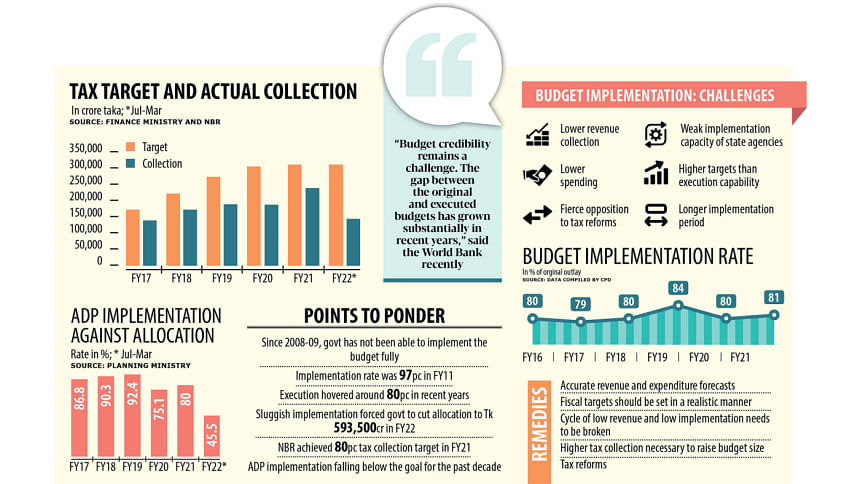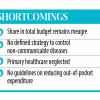Budget needs to address inflation, return stability

As the government makes its final preparations for the upcoming budget, we would like to remind the authorities of the unique challenges that it needs to address utilising the next budget. As the country recovers from the pandemic-induced losses, inflation has become a major challenge due to various external and perhaps also internal factors. However, it appears that the government is planning to formulate its next budget with the same mindset that it did prior to the pandemic.
During the past two fiscal years, the budget size grew only in single digit, which was a departure from what had previously become the norm. This time around, the government is looking to return to a budgetary growth of double digits. According to a finance ministry report, the budget will seek to bring inflation under control, attract investment, complete the implementation of the 28 stimulus packages, boost agricultural productivity particularly by incentivising farm mechanisation and enhance social security for the poor and the vulnerable. Although we agree with all of these goals, we cannot help but remain sceptical as to how they would be achieved—particularly in light of past government failures, despite lofty promises.
For example, the government stimulus packages introduced for small and medium enterprises have largely failed to achieve their goals. Small and medium businesses struggled to access the benefits of these government schemes throughout the whole pandemic. As for the social security programmes for the poor, time and again we have seen corruption eat away at them—resulting in influential and people close to power benefitting from them, rather than the poor who really needed them.
Moreover, it would not be wrong to say that the country has not yet fully recovered from the damage done by the pandemic. As huge numbers of people lost their jobs and education had literally come to a halt, the budget should focus on generating more employment—which the government was struggling to do even before the pandemic—and budgetary allocation for education has to be substantial. Due to various external circumstances, the government's foreign exchange reserve has dwindled in recent times, and there are some concerns in terms of the growing national debt—and the high cost of servicing them. Therefore, the government needs to utilise whatever resources it has at its disposal more prudently—something that the government, again, has failed at in the past.
As highlighted by experts, it would be best for the government to remain cautious when it comes to budgetary allocations. When it comes to human development related expenses, the government should spend more. However, it should cut back on unnecessary spending such as foreign tours by government officials and car imports for government officials in order to lower the pressure on the country's reserves. The traditional procedure of wasting valuable funds needs to be abandoned. More focus should instead be placed at effectively implementing essential government programmes, rather than creating lofty plans that the government does not have the capacity to follow through with.

 For all latest news, follow The Daily Star's Google News channel.
For all latest news, follow The Daily Star's Google News channel. 








Comments